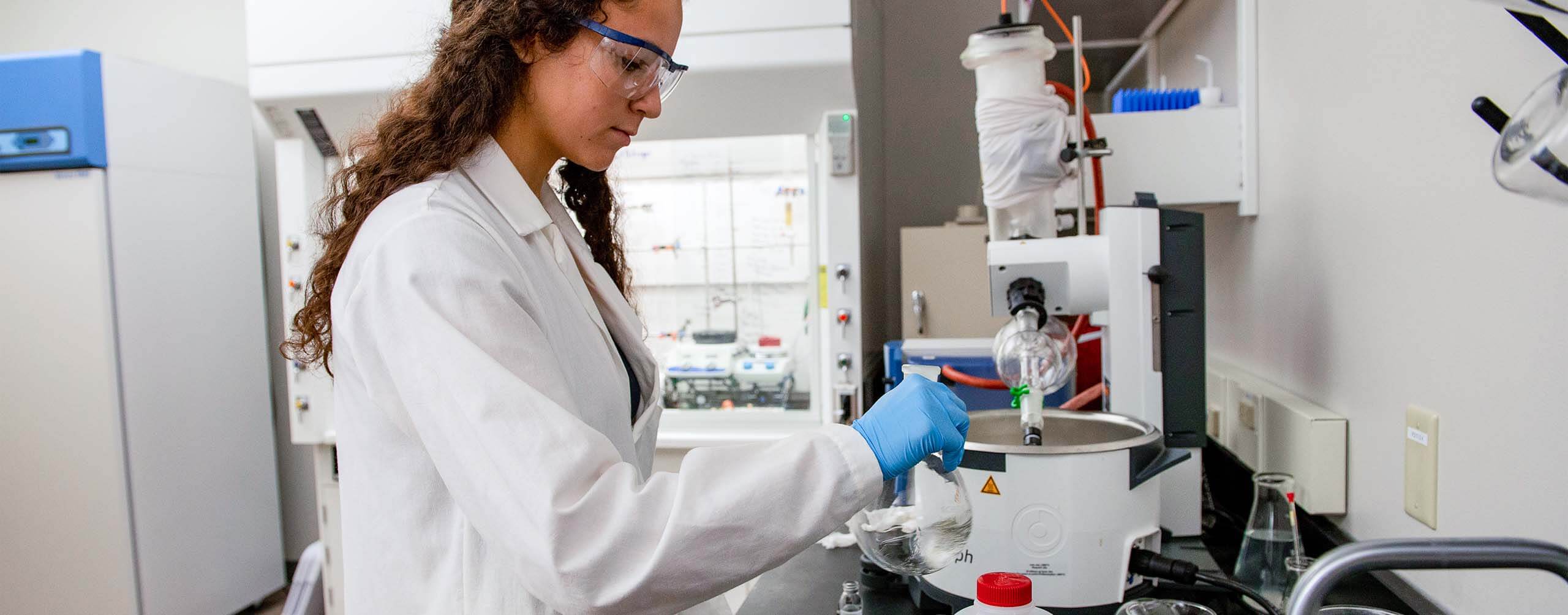
Molecular and
Biomedical Science
College of Earth, Life, and Health Sciences
A degree in molecular and biomedical science is ideal for any student interested in a career that revolves around the general study of molecular systems which are involved in DNA and molecular genetics. This degree will give students the experience and resources they need to prepare for a career in the expanding pharmaceutical, health and agricultural industries.
Molecular and Biomedical Science is the study of organisms at the molecular level with regards to the organization, transmission and expression of genetic information, in addition to the general study of macromolecular systems involved in the structure of DNA and molecular genetics including gene cloning, sequencing, and mapping. Developments in recombinant.
A key aspect of the program is the opportunity to gain hands-on experience in the laboratory. Laboratory courses are offered in fundamental aspects of biochemistry and microbiology as well as specialized topics such as recombinant DNA techniques, virology, cell culture, immunology, pathogenic microbiology and microbial genetics and diversity.
In their senior year, all majors are required to engage in independent research with a faculty member. This direct link to active national and international-level research activities is an important aspect of our undergraduate programs. Students become part of a research team in the faculty’s laboratory and are actively engaged in ongoing research projects that are both publicly and privately funded.
A career in molecular and biomedical science offers an opportunity to explore new phenomena, participate at the frontiers of actively expanding areas of science and to make significant contributions to the human condition and global community.
Our graduates have taken positions in university research laboratories; biotechnology industries; medical, dental and veterinary research laboratories; public health laboratories; pharmaceutical, food and chemical industries; and environmental research and monitoring laboratories.
Our faculty are active in a variety of research fields. Many have working relationships with top research institutes in Maine, such as The Jackson Laboratory and Maine Institute for Human Genetics and Health. Funding for faculty research comes from the National Science Foundation, National Institutes of Health and other national organizations.
Our majors are highly competitive in getting into graduate programs at colleges and universities around the country. Our students are very competitive for admission to medical schools and other health-related fields as a result of our rigorous biochemistry and microbiology courses.
Melody Neely
Chair
Hitchner Hall, Room 360
207.581.1513 | melody.neely@maine.edu
Ed Bernard
Undergraduate Coordinator
Hitchner Hall, Room 284
207.581.2804 | edward.bernard@maine.edu
Molecular and Cellular Biology
College of Earth, Life, and Health Sciences
Hitchner Hall
207.581.2810
